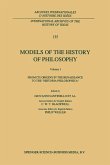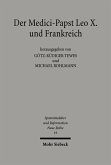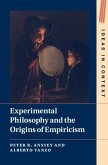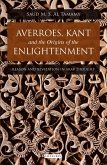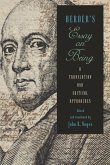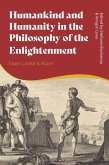Analysis of the close relationship between religion and secular learning in the works of one of the central figures of the early German Enlightenment, the jurist and philosopher Christian Thomasius (1655-1728).
The Enlightenment continues to be associated with the secularization and de-Christianization of intellectual culture in the West. And yet, religious thought played a far greater role in the emergence of the Enlightenment than is often recognized. In this book Thomas Ahnert analyzes the close relationship between religion and secular learning in the works of one of the central figures of the early German Enlightenment, the jurist and philosopher Christian Thomasius (1655-1728). Thomasius is now known mainly for his "enlightened" intellectual reform program, but Thomasius also believed that such reform necessarily involved a regeneration of Christian faith, which had been corrupted by self-interested clergymen and ecclesiastical institutions. This book is the first to examine the importance of Thomasius's complex religious beliefs for the entire spectrum of his main intellectual interests, which ranged from moral philosophy and law to history and the explanation of natural phenomena.
Thomas Ahnert is Lecturer in Early Modern Intellectual History at the University of Edinburgh.
The Enlightenment continues to be associated with the secularization and de-Christianization of intellectual culture in the West. And yet, religious thought played a far greater role in the emergence of the Enlightenment than is often recognized. In this book Thomas Ahnert analyzes the close relationship between religion and secular learning in the works of one of the central figures of the early German Enlightenment, the jurist and philosopher Christian Thomasius (1655-1728). Thomasius is now known mainly for his "enlightened" intellectual reform program, but Thomasius also believed that such reform necessarily involved a regeneration of Christian faith, which had been corrupted by self-interested clergymen and ecclesiastical institutions. This book is the first to examine the importance of Thomasius's complex religious beliefs for the entire spectrum of his main intellectual interests, which ranged from moral philosophy and law to history and the explanation of natural phenomena.
Thomas Ahnert is Lecturer in Early Modern Intellectual History at the University of Edinburgh.
Dieser Download kann aus rechtlichen Gründen nur mit Rechnungsadresse in A, D ausgeliefert werden.



